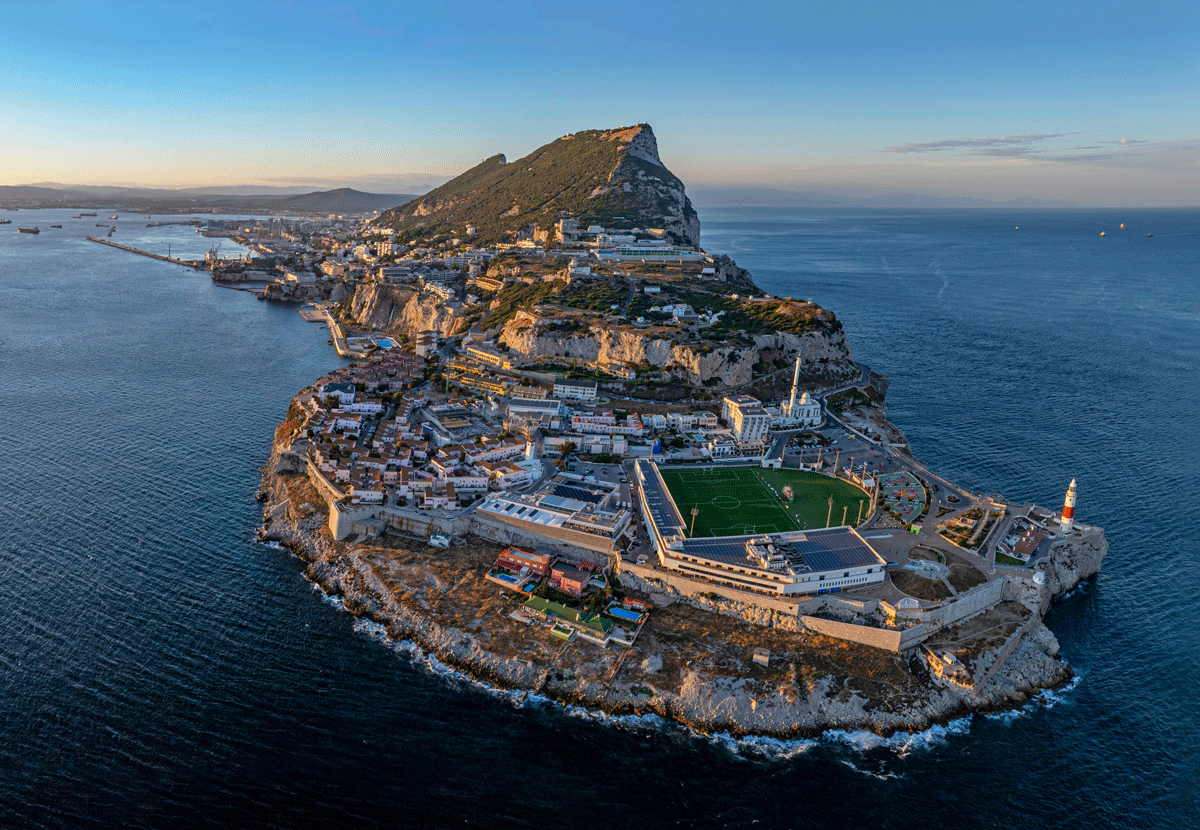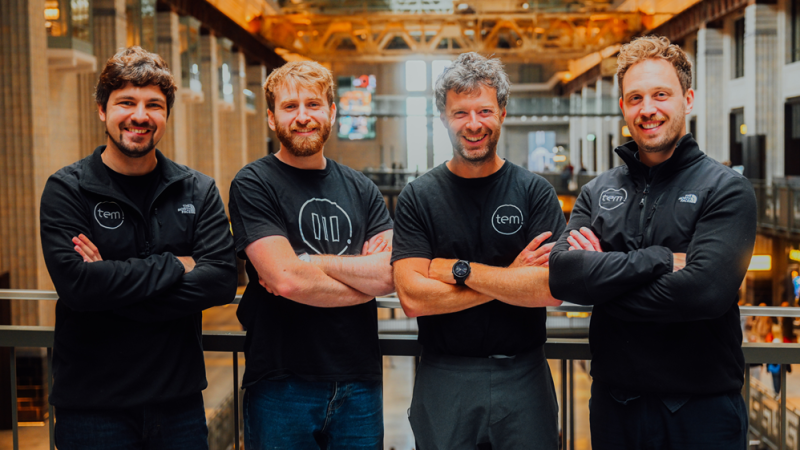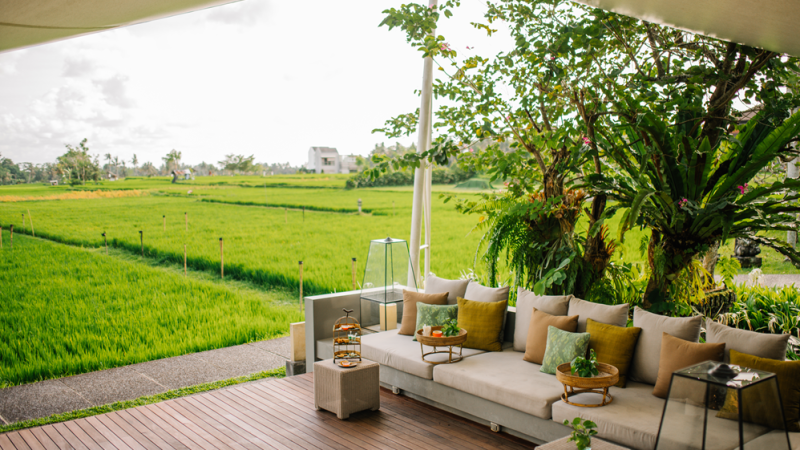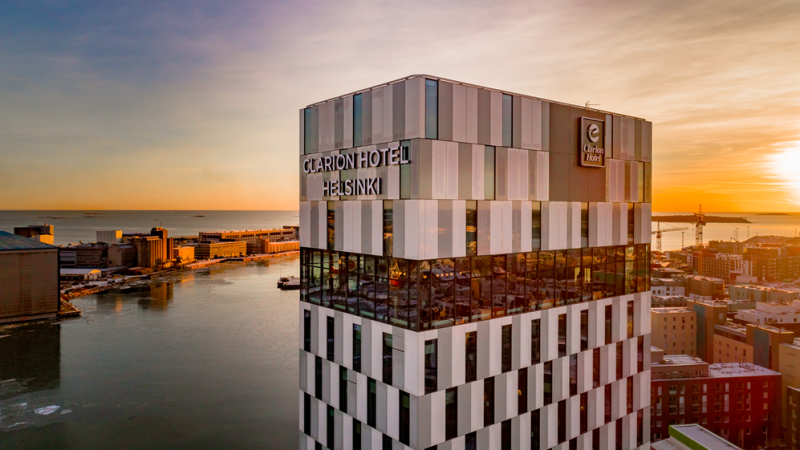Gibraltar is a small country with a long history, a huge variety of wildlife and natural beauty, and so much more to offer besides. So it is no surprise that the country attracts a lot of sightseers. As tourist interest has grown, so has the role of tourism in Gibraltar’s economy. Today, tourism contributes significantly to the GDP of the country. It is a huge industry that covers a wide spectrum of sectors across different businesses and areas of the economy, including cruise liners, airlines, overland tourism from Spain, individual travellers and even sports.
Gibraltar Tourist Board exists to further grow that market, as well as ensuring that the country’s offering can adapt to keep up with the changing demand within the sector.
“We help coordinate those activities and promote Gibraltar as a destination,” says Kevin Bossino, CEO of Gibraltar Tourist Board.
There is no denying that it is a unique destination. Its position at the southern tip of the Iberian Peninsula means that Gibraltar has historically been recognised as the southernmost point of Europe. At the same time, the country’s strategic position at the western end of the Mediterranean, as one of the ancient “Pillars of Hercules”, puts it in a key geographic position.
 Gibraltar also has a unique attraction in the form of its nature reserves, with its resident Macaques (Monkeys) that are the country’s pride and joy.
Gibraltar also has a unique attraction in the form of its nature reserves, with its resident Macaques (Monkeys) that are the country’s pride and joy.
“One thing I frequently talk about is that there is a point in Gibraltar where you can see three countries on two continents. It is a fantastic geographical and geopolitical place to be in,” points out Gemma Arias-Vasquez, Gibraltar’s Minister for Health, Care and Business as well as the Minister for Port, Maritime, Public Health, Town Planning, Procurement and Utilities.
The nearest countries to Gibraltar are Spain to the North, and Morocco to the South, in Europe and North Africa respectively. Morocco is on the other side of the strait, only 24 kilometres away.
The land of Gibraltar itself is old, with the famous Rock made of 200 million-year-old Jurassic Limestone.
“We are a compact nation,” Bossino says. “You can walk everywhere, and there are heaps of activities you can do in a very short space of time. You can be scuba diving shortly after landing and a couple of hours later you can be up exploring the Upper Rock Nature Reserve or meeting your family for lunch after they’ve been shopping.”
The New Tourists
As tourists’ interests have evolved, so has Gibraltar’s offering.
“We have expanded our product, invested more in our market and rebranded our national identity,” Bossino says. “Before Covid, we used to see more visitors coming in coaches. After Covid there has been a shift to more individual travel. People are more adventurous and would rather experience the destination on a personal level than in a coach with 50 other people.”
“People are more comfortable with technology as well,” Santos adds. “We used to have more package holidays, where now people do their own research, and we have seen a lot of growth in online sales. Independent tourism has grown exponentially.”
That hunger for experience is what fuels modern tourism. Travellers want to experience something new, and importantly, share it through apps such as Instagram.
“They don’t necessarily want to lie on a beach all day, they want to have an experiential visit with the beach as a nice add-on,” Bossino says.
Social media, as much as tourists’ post-Covid hunger for experiences, is having a huge impact on the way tourism is marketed and sold.
“We have seen an interesting phenomenon recently with a local young man who has a PhD in history,” says Arias-Vasquez. “He returned to Gibraltar and is creating historical posts on Facebook and Instagram on different heritage sites. He is developing a product from that to make something he can market, and we have involved him with the Tourist Board. He’s doing podcasts around Gibraltar to guide people through sites of historical value.”
Simultaneous to the work that brings people to the history, the Gibraltar Tourist Board is working to bring the country’s rich history to more people. Bossino points to a company the Tourist Board is working with that provides 3D scanning and imagining solutions. They can create extremely accurate 3D images of sites for people to view remotely. Some of these might be sites people want to look around before they visit, such as marriage registrar offices, others might be sites that sightseers are unable to visit in large numbers as they may be sensitive archaeological areas, such as Gorham’s Cave.
“People can go to the interpretation centre and experience the cave as if they were in there,” Bossino says.
As well as all the history, natural beauty and experiences that Gibraltar can offer, it is also famous for its VAT-free shopping. Gibraltar offers a wide variety of shops to choose from on Main Street and the surrounding area. This busy, yet pedestrian-friendly street runs almost the entire length of the city, from Casemates Square to Southport Gates. Here you can buy clothes or locally produced products, while side streets lead into Irish Town and Engineer Lane where travellers can enjoy small shops situated within picturesque old buildings.
In these shops, you can find good prices on perfume, cosmetics, jewellery, tobacco and spirits, and consumers can find excellent deals on the biggest brand name sunglasses and watches. You can also find great deals on crystal and porcelain here, and it is a beloved destination for people seeking out unique works of art or locally made handicrafts. Independent businesses are tightly packed, offering a vibrant and exciting retail experience for visitors that reflects the rich diversity of the country’s history and location. Visitors are invited to explore and shop around for the best deals, with most retailers accepting both sterling and euros.
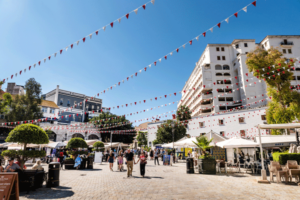 More Than a Nice Place to Visit
More Than a Nice Place to Visit
With all that Gibraltar has to offer, it is not surprising that many choose to stay. For them, it is fortunate that Gibraltar has more to offer than attractions and hospitality.
“A lot of people come to Gibraltar, visit and love it and look for ways to come back and make it a home,” Arias-Vasquez says. “From a business perspective, we are attractive to work from, not just from a lifestyle perspective but also because of the corporate environment we provide.”
Once again, this is a place where Gibraltar’s size plays to its advantage.
“Because everything is within close proximity,, we can get things done really quickly,” Arias-Vasquez adds. “It is a great choice of location to come and set up business.”
Alongside this, it helps that Gibraltar is a primarily English-speaking country. Although even that is a simplification of Gibraltar’s rich culture and heritage. The country’s official language is English, and its children are educated to the British education curriculum, sitting their GCSEs and A-levels as they would in mainland UK. But Spanish is widely spoken here, particularly the unusual, unofficial dialect called ‘Llanito’, which is a mixture of English, Spanish and some Italian words. As an English or Spanish speaker, “Llanito” might sound familiar, especially as speakers sometimes seem to switch languages mid-sentence. Often English words will be spoken with a Spanish intonation, and Gibraltarians will frequently speak standard Spanish when talking to Spanish speakers as well.
This hybrid dialect reflects Gibraltar’s long history. In the early decades of the 19th century, Llanito used many Genoese words, with Spanish and English words being substituted into its lexicon as time went on. The country has also had a Jewish community for many years, and its influence can also be felt in the local language. Over the centuries the country has been home to immigrants from Spanish, Genoese, Maltese, Moroccan, Indian and Portuguese backgrounds, as well as British settlers. Together, these heritages have formed a diverse and multi-ethnic community. Roman Catholicism is the most widely practised religion, but various Christian denominations and other faiths including Judaism, Muslim, Hindu, Bahai and Jehovah’s Witnesses, are also common. This combination of a strong local identity and a mix of international influences is key to Gibraltar’s offering as a business destination.
It is also an area that Gibraltar’s Tourist Board is looking to expand on in other ways.
“We want to expand the MICE sector,” Bossino points out. “Meetings Incentives Conferences and Exhibitions. We have a unique offering for small meetings, conferences and incentives because of the variety of things you can do that are just a hop away from any location.”
Gibraltar Tourist Board acts as a facilitator for buyers looking into the country as a potential MICE location. Although the Tourist Board does not operate as a conference bureau, Destination Management Companies (DMC) or events organiser, the organisation is well-positioned to direct queries to relevant suppliers, or simply suggest which suppliers are best suited to buyers’ requirements. They are also happy to talk about the many reasons that Gibraltar is the perfect destination for small-to-medium sized conferences or incentive trips, with its prime location at the ‘the meeting place of continents’ and the exceptional variety it can offer in a contained, safe environment.
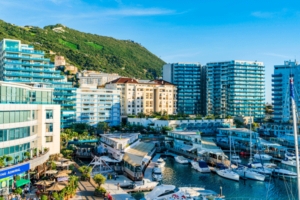 Once again, Gibraltar’s size proves to be a differentiator, with facilities and attractions all within the kind of easily accessible reach that makes drawing up travel itineraries so much easier. The city’s cosmopolitan blend of modern and timeless, with so much of it navigable by foot, makes it an appealing destination for business trips, or indeed, for setting up your business’s new home. It is clear to see why the country is attracting such interest in business space.
Once again, Gibraltar’s size proves to be a differentiator, with facilities and attractions all within the kind of easily accessible reach that makes drawing up travel itineraries so much easier. The city’s cosmopolitan blend of modern and timeless, with so much of it navigable by foot, makes it an appealing destination for business trips, or indeed, for setting up your business’s new home. It is clear to see why the country is attracting such interest in business space.
When we speak with the Gibraltar Tourist Board, it is a couple of weeks away from a visit by the Business Traveller Association from the UK. This organisation’s members are responsible for 95% of corporate travel outside the UK, so Gibraltar is excited to show what it can provide as a venue for small meetings and conferences.
But while interest in Gibraltar as a business travel destination is growing, the future for Gibraltar’s tourism sector alone is still an exciting one, with plans to expand and build on its success.
“Gibraltar will continue to increase its offering in the tourism sector, with lots of investment into our heritage sites to make them even more user-friendly,” Santos tells us. “We are investing in our World War II tunnels, opening up a new interpretation centre. There is currently a huge renaissance for Gibraltar and interest in its past. We are also seeing numbers increase in the cruising industry, and encouraging airlines to increase flights.”
As a holiday destination and a potential place to do business, Gibraltar has a long and proud history behind it. In promoting that heritage, the Gibraltar Tourist Board leads the way in the next stage of the country’s future. Evolving, changing and adapting over time to meet the needs of a rapidly changing world, and attracting new audiences, travellers and businesses. Gibraltar has made itself a truly timeless place.
“Gibraltar is a classic product, and we are making it relevant to the modern-day holidaymaker. Gibraltar will always feel like a home away from home,” Santos shares proudly.
For more information, please visit: www.visigibraltar.gi
